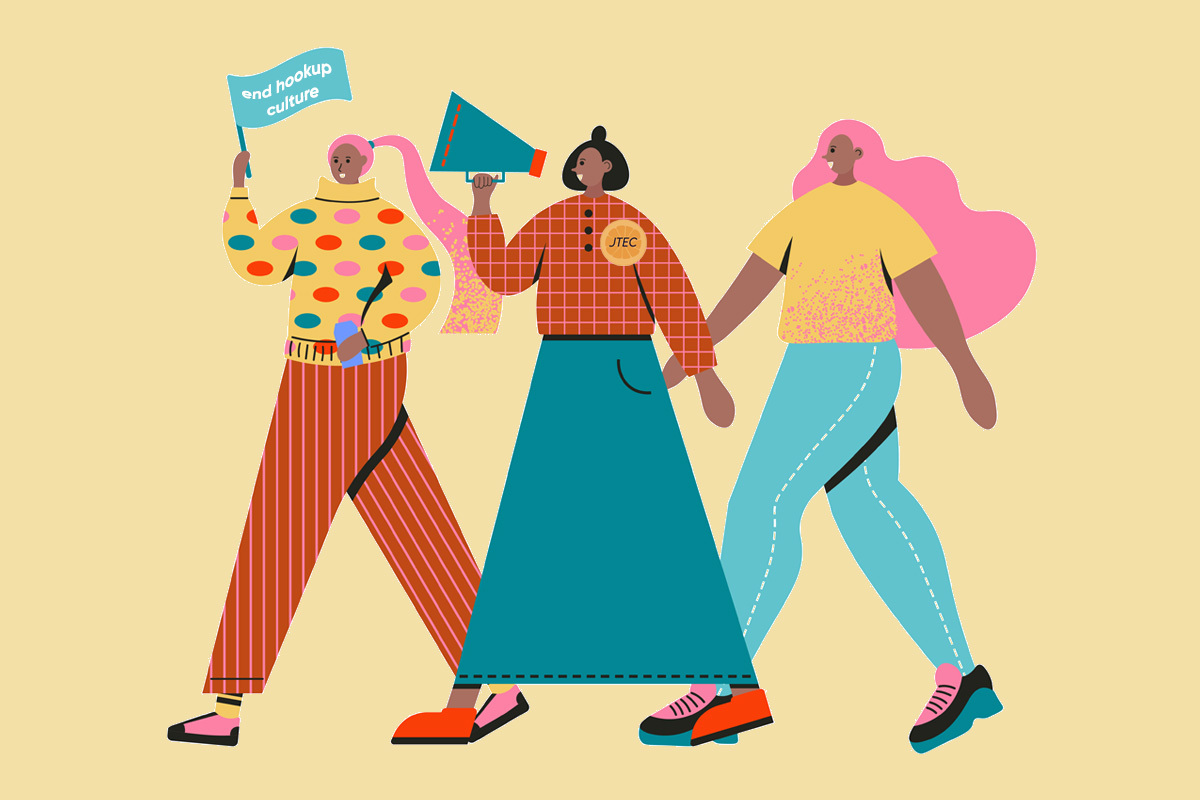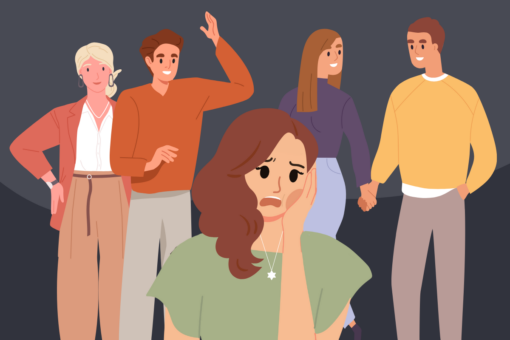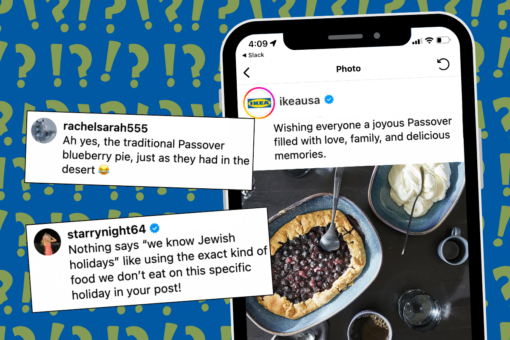For many Jewish teens, youth group organizations are some of the few places in which they can express their Judaism openly and connect with others who have the same religious background. Like most spaces we find ourselves in, however, they are not without their flaws.
In response to what they see as a “toxic hook-up culture” found in many Jewish youth groups, six young women have launched the platform Jewish Teens for Empowered Consent (JTEC) to bring awareness to the “sex-negative” atmosphere they experienced in Jewish youth groups. The initiative wants to highlight the toxic and overly sexualized atmosphere.
Founders Madeline Canfield, 19, Lila Goldstein, 18, Ellanora Lerner, 18, Lilah Peck, 18, Maddy Pollack, and Dahlia Soussan, 17, first met through the Jewish Women’s Archive 2019-2020 Rising Voices Cohort, a writing fellowship for high school women interested in the intersection of Judaism and social justice. What started as a conversation during one of the fellowship’s webinars sparked an article idea that eventually led to the creation of the platform.
“We were in a session about LGBTQ+ inclusion in the Jewish community. And this germinated in the chat because we were talking about how these [youth] groups are a very heteronormative space. It spiraled into everyone sharing these experiences,” Soussan explained. “I think all of us, when we were in our [own] youth group, felt this. But we didn’t necessarily realize that we all had such similar experiences across different places in the country.”
Inspired by their impassioned Zoom conversation, the group then teamed up to write an article critiquing the highly sexualized, heteronormative spaces they’d found within mainstream Jewish youth groups. The article cites specific examples of what the young women experienced within their respective organizations: almost mandatory grinding on the dance floor, songs that both slut-shamed women and mocked prudeness, and disturbing chants that perpetuated toxic masculinity while bragging about sexual encounters.
Perhaps most unsettling to the this group of young women was the “points system” that assigns varying point values for hooking up with others at different youth group events. For example, participants earn more “points” for hooking up with someone on the youth group’s leadership board or the rabbi’s daughter. The group also says that the points system fetishes LGBTQ+ people by assigning an unusually high amount of points to same-sex hook-ups.
The article was published on eJewish Philanthropy, which is primarily read by adults in the Jewish non-profit world. To get their message across to a wider group, the JTEC team decided to launch their Instagram platform — @jews4empoweredconsent — to reach current Jewish youth and alumni of youth groups.
“We definitely all believe that grassroots change is a really important part of this; it needs to come from both the current youth as well as alumni and even parents — people who are stakeholders in this,” Lerner said.
The Instagram page, which launched this past September, shares anonymous stories that youth group attendees submit via a Google form. The stories, ranging from uncomfortable interactions on the dance floor to heartbreaking stories of sexual assault, shed a light on a problem that many may not even be aware exists. The account also shares infographics on topics like consent, heteronormativity, and sex-positivity.
The initiative has been met with mixed reactions.
“Right after we finished our article, we started getting attention from adult leadership in different youth groups. We had a series of Zoom meetings with them, discussing our mission and everything. But there was definitely a feeling that this wasn’t something to take seriously— [that] maybe we were just mad about the culture or maybe we just didn’t have a boyfriend or something like that,” Goldstein explained.
Still, she mentions that the positive responses seem to outweigh the negative, and people seem open to having a platform to discuss their experiences within youth groups.
The women who founded JTEC are quick to point out that calling out a negative hook-up culture is not inherently anti-youth group.
“We really care about Judaism. We really care about the Jewish community. We really see the value in these organizations. But we want to make it clear that if you love something, part of that is to make it better,” Lerner said.
The women are currently working on more projects outside of their Instagram platform, including developing a seminar on consent and a curriculum so that youth groups can work to create a more positive space for all. But, they are committed to growing their Instagram page to continue to give others the opportunity to share their personal narratives.
“It’s really empowering to get testimony — the fact that people are trusting us with their experiences and in some cases, the traumas, that they’ve experienced in youth groups,” said Goldstein.
And through it all, the founders view JTEC as an extension of their Jewishness.
“Jewish minds question. Jewish minds push. Jewish minds have this spirit of self and societal improvement,” Peck said.
And push they have.
Header design by Emily Burack. Original via Anna Morozova/Getty Images.



